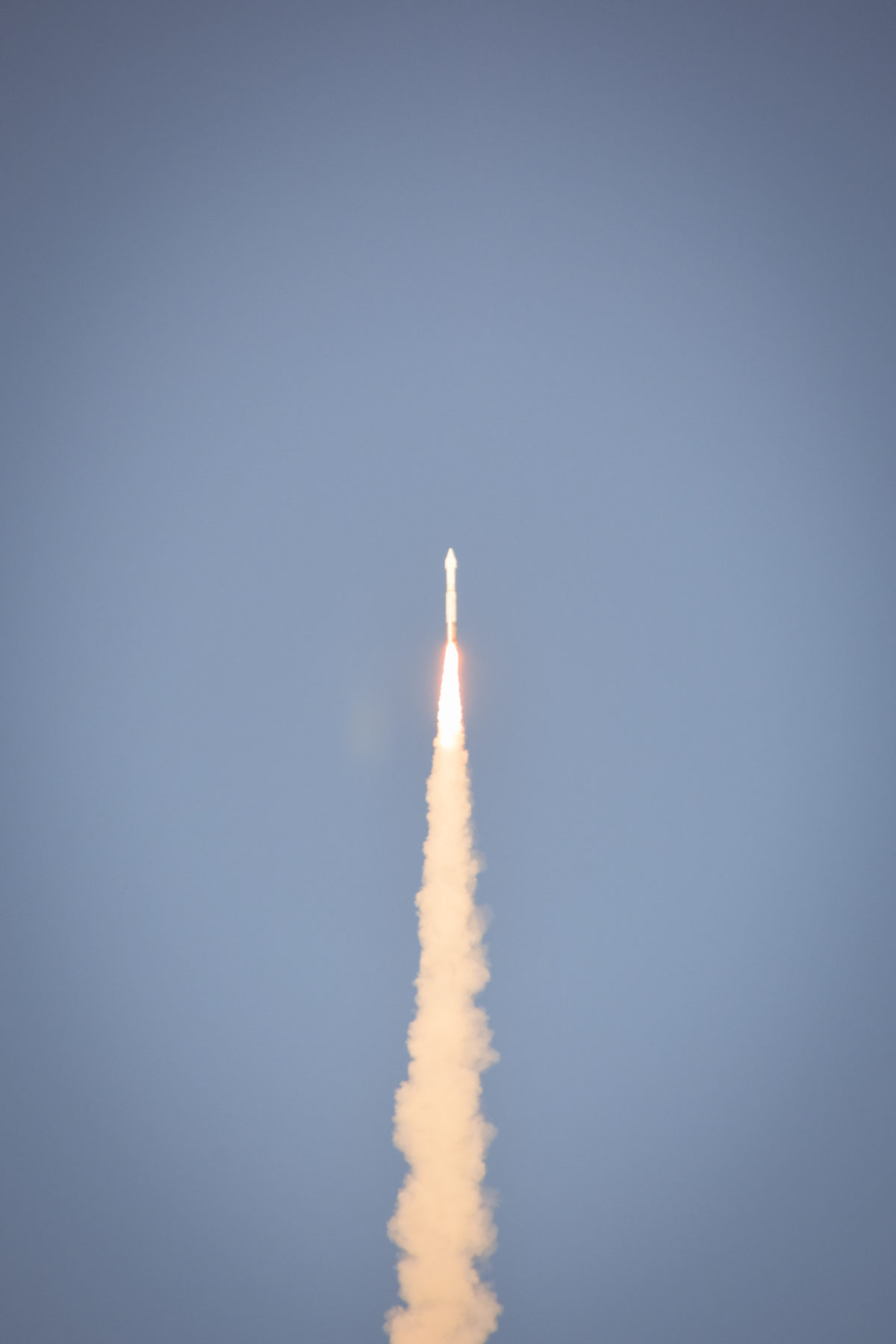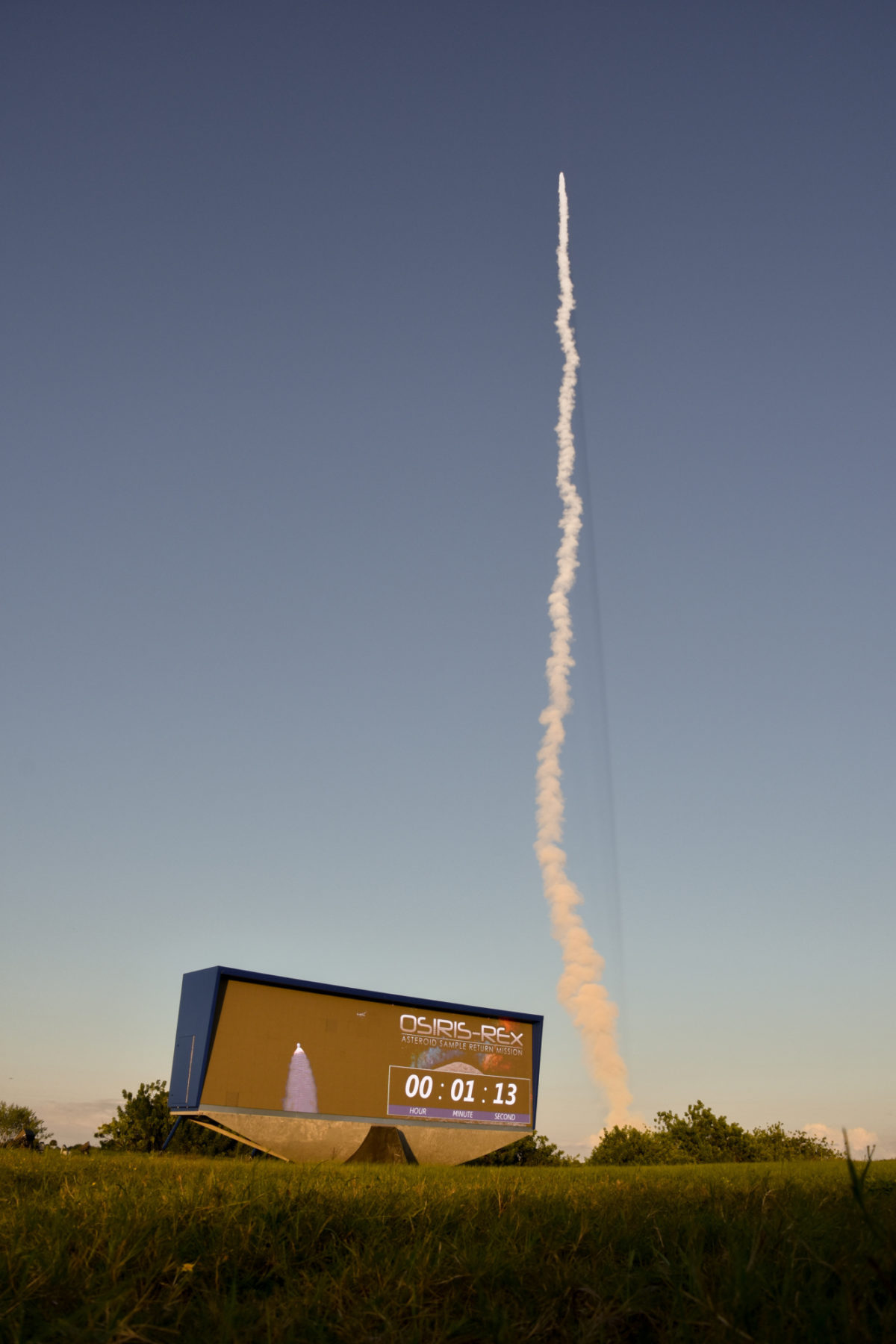Jason Davis • Sep 08, 2016
OSIRIS-REx blazes into evening sky, starting journey to asteroid Bennu
Illuminated by the waning rays of sunlight here at Cape Canaveral Thursday evening, NASA's OSIRIS-REx probe soared flawlessly into space, kicking off a seven-year journey to asteroid Bennu and back.
Liftoff occurred on time at 7:05 p.m. EDT (23:05 UTC). Flying with a single, offset solid rocket booster, the spacecraft's Atlas V launch vehicle darted quickly off the pad and was visible for about three minutes as it curved gently into the evening sky over the Atlantic Ocean.
An hour later, OSIRIS-REx was cruising toward interplanetary space and communicating as expected with NASA's Deep Space Network in Canberra, Australia.
"You'll all be real glad to know that we got everything just exactly perfect," said Dante Lauretta, the mission's principal investigator at the University of Arizona in Tucson. "I can’t tell you how thrilled I was this evening."
Lauretta and other mission representatives were met with cheers as they entered a post-launch press conference.
"Tonight is a night for celebration," said Ellen Stofan, NASA's chief scientist. "We're on our way to an asteroid!"
Full OSIRIS-REx coverage from The Planetary Society
Don't miss our launch preview article by Emily Lakdawalla.
Learn about the nine-year-old that won our contest to name asteroid Bennu.
For more pretty pictures, check out our Flickr photo gallery.

A bright spot for an impending lull in planetary exploration
The OSIRIS-REx mission marks a bright spot in what will soon be a dark time for NASA’s solar system exploration program. By the time the spacecraft arrives at Bennu in 2018, there will be no spacecraft visiting or en route to any of the outer planets—Jupiter, Saturn, Uranus and Neptune—for the first time since 1979.
The Cassini probe, which has been orbiting Saturn since 2004, will plunge into the planet’s atmosphere in 2017. Juno will follow suit at Jupiter in early 2018.
Bennu’s orbital path will keep OSIRIS-REx closer to home. It only takes 1.2 years for the coal-black, near-Earth asteroid to travel around the sun.
After arriving in 2018, OSIRIS-REx will survey Bennu for two years before collecting a small soil sample. The spacecraft will depart as early as March 2021 and return its sample capsule to Earth in September 2023.
OSIRIS-REx is the third of NASA’s cost-capped, mid-budget New Frontiers missions. The first, New Horizons, flew past Pluto last year. The second, Juno, entered orbit at Jupiter on July 5.
The mission has a budget of almost $800 million, not including the $184 million sticker price of its Atlas V carrier rocket. But at the moment, OSIRIS-REx is under budget by at least $30 million, according to Lauretta.

Savoring the moment
OSIRIS-REx is the first NASA planetary science mission to launch since MAVEN in 2013. The next will be Insight, in 2018.
Both MAVEN and Insight are Mars missions, along with the Curiosity rover's future successor, which is scheduled to launch in 2020. NASA is also currently in the planning stages of a mission to Europa.
And so for tonight, the agency is savoring the moment. The anomaly-free, sunset launch seemed to create a satisfying end to the years-long anticipation for launch day.
"We're making enormous strides about knowing the solar system and our place in it," said Jim Green, the director of NASA's planetary science division.
"Planetary science, for me, is where it’s at," he said. "We just keep hitting it out of the ballpark. And tonight, we hit it out of the Earth."



 Explore Worlds
Explore Worlds Find Life
Find Life Defend Earth
Defend Earth


